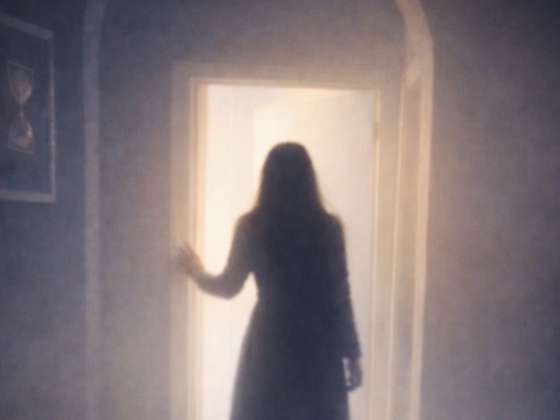Maude Latour’s debut record, Sugar Water, feels like a diary cracked open at midnight—an intimate reflection on the grief of losing a first love, a growing pain that never truly disappears but instead becomes a part of your identity.
"This person taught me how to live,”
Latour writes on her social media about her former boyfriend, the central figure of the album’s narrative, who tragically died halfway through its creation. “Suddenly, all the memories of ages 15-24 came rushing back—us as NYC teenagers, on rooftops, the lawn, clubbing at 15, wild parties, ending up with strangers… We thought we ruled the world."
Latour has always had an exceptional ear for production, but this record takes her signature sound to new heights, blending seemingly incongruent elements into a cohesive whole. Each song creates its own sonic landscape that is both innovative and engaging. She meticulously crafts her harmonies, adding layers of depth without overwhelming the listener, while her straightforward, belting vocals either contrast with or complement the instrumentation, giving each track a distinct texture and tone. For Latour, it’s clear that production doesn’t just serve as a backdrop to the narrative; it builds the entire world.
The album opens with the effortlessly light and hopeful “Officially Mine.” As Latour sings, “They’ll write bibles about us forever,” shimmering piano chords and crashing bass instantly transport you. It’s as if you’ve just touched down in New York City, and there are endless possibilities.
However, this optimism is fleeting. As the album progresses, Latour navigates her relationship with an almost premonitory sense of loss, as if she’s already bracing for a fatal end. This anticipation of heartbreak makes the eventual real-life ending all the more devastating. At times, grief manifests as classic teenage heartbreak—crying when she hears their song or standing outside her lover’s old apartment.
Other times, it’s less obvious, like when she envisions boarding a plane to see her lover, only to hear the pilot announce that, despite the blue skies ahead, everyone she left behind is dead. Or when thoughts of her first love surface while she stands with someone new in the grocery store checkout line.
Yet, even if you have to listen closely to catch it, the loss is always there, lurking behind the blissful ignorance: the loss of control, of certainty, of the confidence that a comparable love exists.
“Cursed Romantics” offers our first glimpse into Latour’s awareness of impending doom, where she describes passionate love as a form of spiritual death. The notion of her lover as a “new religion” suggests that he views love as a belief system demanding total devotion, even at the cost of self-destruction: “What do I do when your love has changed me? / It’s so impressive when you overtake me.”
As the relationship teeters on the edge of collapse, Latour masks her emotions with a veneer of indifference, accompanied by a dance-worthy beat. Tracks like “Too Slow” and “Summer of Love” provide a temporary refuge from the anxieties of love. However, this mental escape only intensifies the disorientation when reality returns in songs like “Whirlpool” and “Cosmic Superstar Girl.” Here, her grief becomes a driving force behind her refusal to let go, as she invokes butterfly effects and holy scriptures to rationalize holding on, even when the end seems inevitable.
The tones in “Comedown” and “Save Me” take on a noticeably darker quality, as if Latour penned them after the tragic incident when the stark reality of being alone in the relationship truly set in. This sadness reaches its peak in “7 (Interlude),” a hauntingly personal goodbye letter to her first love, where Latour grapples with the finality of letting go.
The song feels like a moment of true closure, but with that closure comes an all-consuming fear—fear of losing herself, of dying alongside the love she’s releasing: “Can you kiss me like it’s fine? / No, I don’t want to die / But I think we might.” The delicate harp, layered with piano and stacked harmonies, amplifies the sorrow to an almost unbearable degree.
Each note of the ascending scale feels like it severs another thread that once bound the couple, evoking a profound sense of heartache while simultaneously hinting at her slowly rising above the pain.
In the end, Latour discovers that the truest love is the one we come to understand through loss. She realizes that love and loss are not simply a one-for-one exchange; rather, absence allows an eternal love to bloom—a love as enduring as “Infinite Roses.” In this space, where grief and love intertwine, she finds that even in the void left behind, something beautiful and everlasting can flourish, a love that will only continue to grow.
Someone please give Maude Latour her Grammy.











